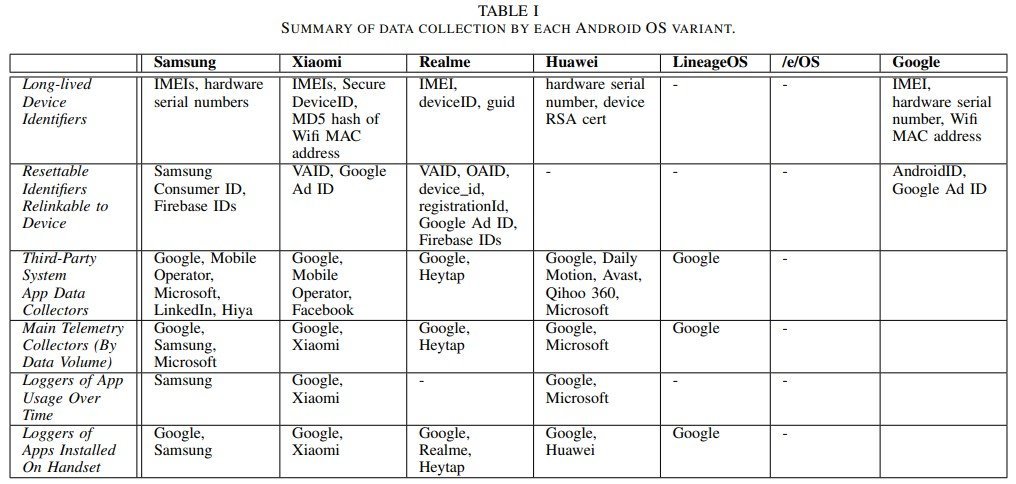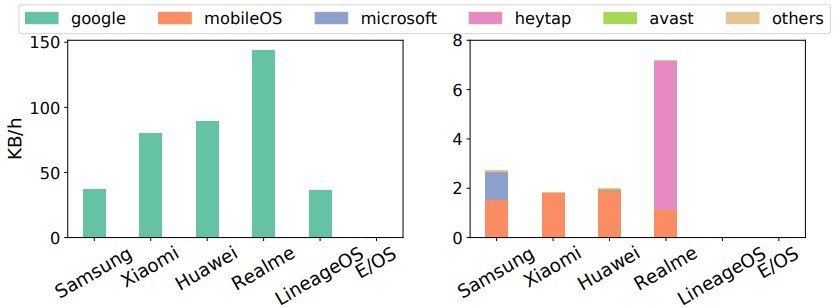A new study by a team of university researchers in the United Kingdom, revealed a number of privacy issues arising from the use of Android smartphones.

The researchers focused on Android devices, specifically the Xiaomi, Realme and Huawei brands, and in addition to the genuine Android operating system, two forks such as LineageOS and / e / OS. The conclusion of the study is worrying for the vast majority of Android users.
With the notable exception of /e/OS, even when minimally configured and the handset is idle, these vendor-customized Android variants communicate significant amounts of information to the OS developer and also to third parties (Google, Microsoft, LinkedIn, Facebook etc.). ) that have pre-installed system applications.
As the summary table shows, sensitive user data such as persistent identifiers, app usage data, and telemetry information is not only shared with suppliers of the device, but are also transferred to various third parties, such as Microsoft, LinkedIn and Facebook.

Source: Trinity College Dublin
And to make matters worse, Google appears at the end of downloading all the data collected, almost the entire table.
There is no way to "disable"
It is important to note that as far as data collection is concerned, there is no exception, so Android users are powerless against this type of telemetry.
This is especially true when smartphone vendors include third-party applications that collect silent data, even if they are not used by the device owner and cannot be uninstalled.
For some of the embedded system applications such as miui.analytics (Xiaomi), Heytap (Realme) and Hicloud (Huawei), researchers have found that encrypted data can sometimes be decrypted, putting users at risk for MitM attacks ( man-in-the-middle).

Source: Trinity College Dublin
As the study points out , even if the user changes the advertising IDs for the Google Account on Android, the data collection system can re-associate the new ID with the same device, and attach it to the original record monitoring.
Users are identified using a variety of methods, such as SIM, IMEI, location data history, IP address, SSID, or a combination of these.

Possible data collection points that are interconnected
Source: Trinity College Dublin
Privacy-conscious Android forks such as /e/OS are becoming increasingly attractive as they offer more privacy on their devices. However, the majority of Android users remain locked in an endless stream of data collection, where regulators and consumer protection organizations must step in and put an end to it.




Fortunately, Google informs us and we find out through Facebook that they do not do such things ……
Come on! The Chinese do such things ????
Or the universe follows us, as an eternal victim of unemployment, but in the end it becomes CHAOS. ?